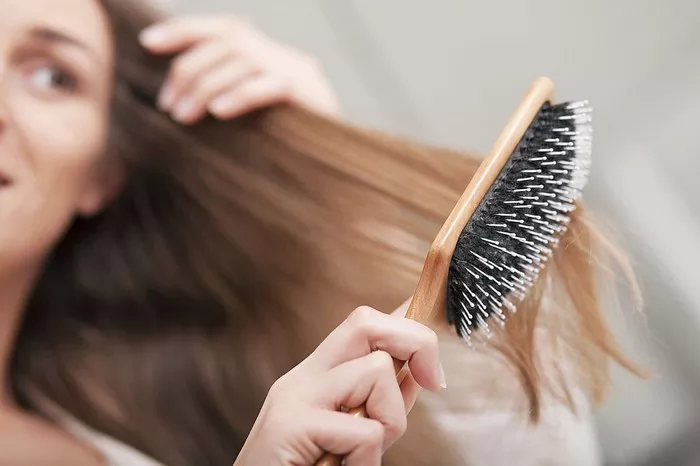Hair loss is a common concern, but many myths surround it, often leading to confusion about what causes it and how to treat it. Dr. Ross Kopelman, a New York City-based hair restoration surgeon, sheds light on these misconceptions and offers advice on natural remedies that may help promote hair growth.
Hair Loss Myths
Myth 1: Wearing hats or washing your hair frequently causes hair loss
Dr. Kopelman clarifies that everyday activities like wearing hats or washing your hair won’t lead to hair loss. These myths are simply untrue. However, other factors such as stress, hormonal imbalances, and underlying medical conditions can contribute to thinning hair or baldness.
Myth 2: Hair loss is only caused by genetics
While genetics do play a significant role in hair loss — with over 80% of men and nearly half of women experiencing it during their lifetime — there are other factors at play. Stress, nutritional deficiencies, and medical conditions like thyroid disease or menopause in women can also trigger hair thinning.
Myth 3: Stopping minoxidil worsens hair loss
Minoxidil, commonly known as Rogaine, is a topical treatment that helps stimulate hair growth. A common belief is that discontinuing minoxidil worsens hair loss, but Dr. Kopelman explains that what happens is that users lose the hair minoxidil helped regrow. It doesn’t accelerate natural hair loss, but it’s essential to continue use for maintenance.
Redensyl vs. Minoxidil: Which is More Effective?
Redensyl, a plant-based hair loss treatment, claims to block DHT, the hormone responsible for hair follicle shrinkage. Though it’s marketed as a natural alternative to minoxidil, Dr. Kopelman remains cautious about its effectiveness.
“Redensyl is promising and has helped some patients with mild thinning, but its results aren’t as well-documented as minoxidil’s,” he explains. “It’s a potential option for those who cannot tolerate minoxidil, but I wouldn’t consider it a full replacement for more significant hair loss.”
Natural Remedies for Hair Loss
Several natural treatments are gaining attention for their ability to help manage or prevent hair loss. While they’re not substitutes for medical treatments, some may complement an overall hair loss plan.
Rosemary Oil: Dr. Kopelman sees promising results with rosemary oil. Studies have shown that it can stimulate hair growth, and some research suggests it works as effectively as 2% minoxidil. Rosemary oil may also promote nerve growth factor (NGF), which helps regenerate nerves in the scalp and supports hair growth.
Dr. Kopelman advises starting with rosemary oil two to three times a week and gradually increasing use. This approach helps build a tolerance before applying it daily.
Saw Palmetto: Another natural remedy that shows potential is saw palmetto, which is believed to block DHT and may help reduce hair loss.
Conclusion
While many myths surround hair loss, the truth is that genetics are just one factor. Stress, diet, and underlying health conditions can also contribute. For those exploring natural remedies, rosemary oil and saw palmetto are among the most promising options, though they should be used in combination with medically approved treatments for the best results. Always consult with a dermatologist or hair restoration expert before starting any new hair care routine.
Related topics:
- The Complete Scalp Care Routine for Healthier, Stronger Hair
- Saw Palmetto: A Natural Remedy for Hair Growth?
- Nutrire Launches Personalized, Clinically Proven Hair Care System


